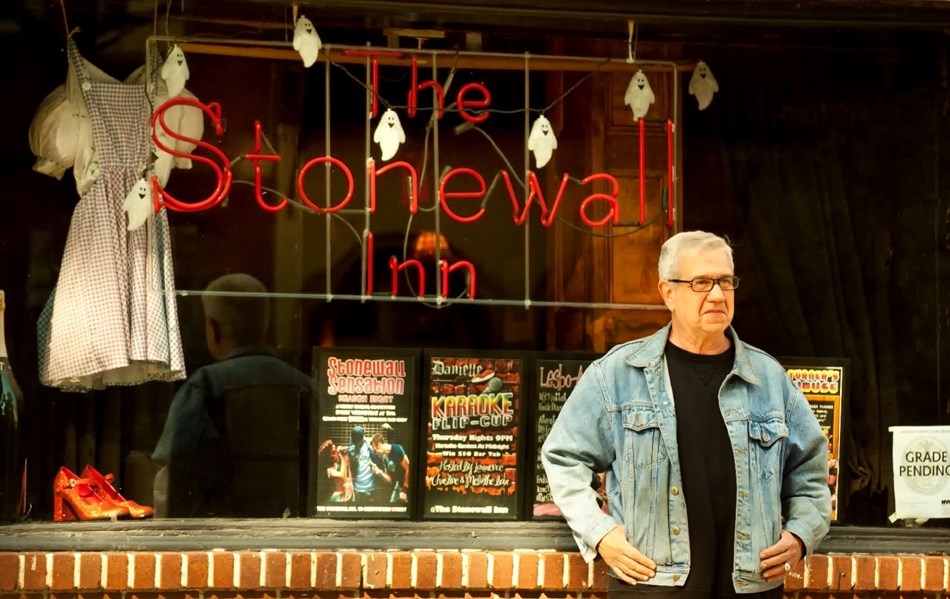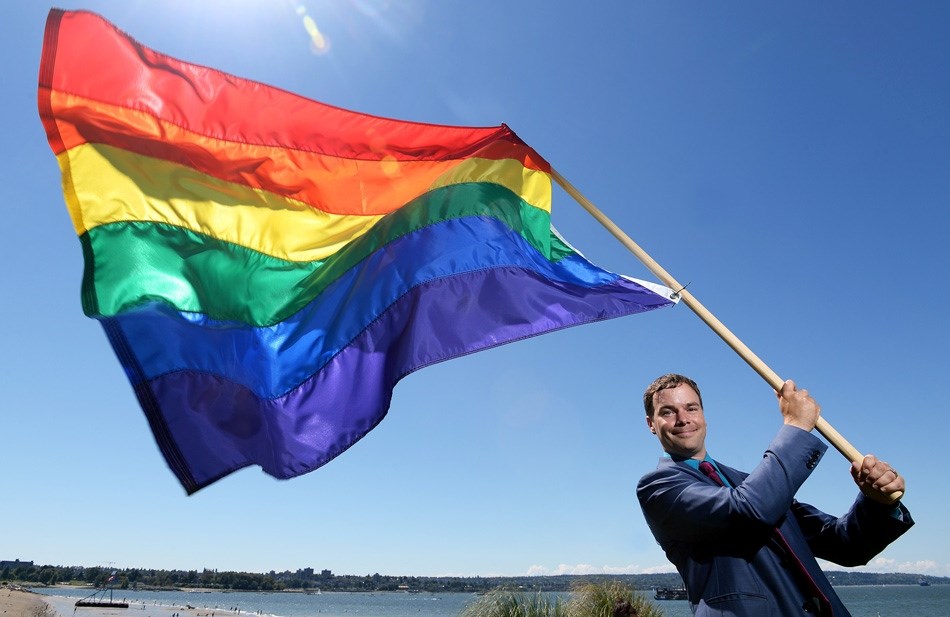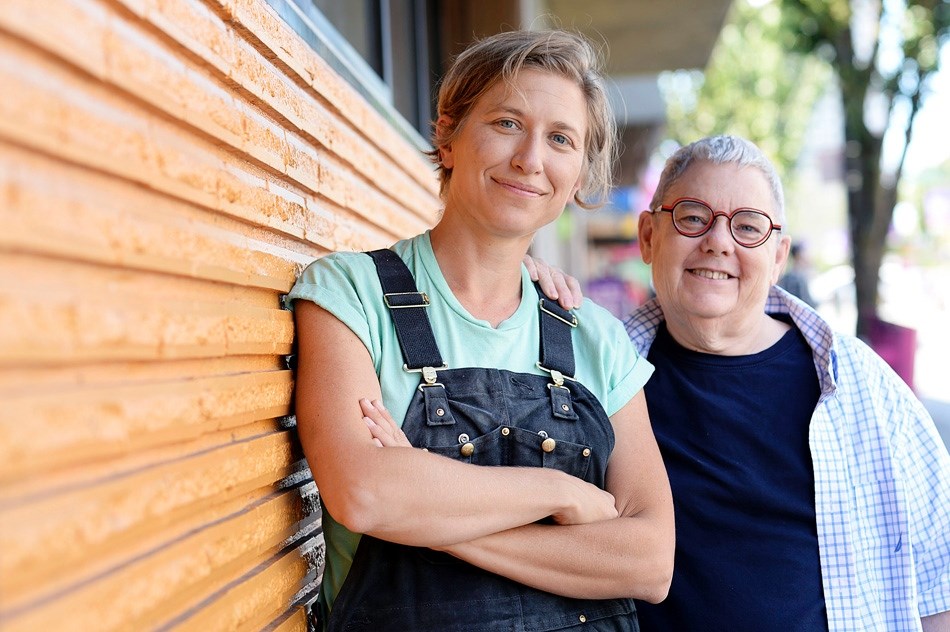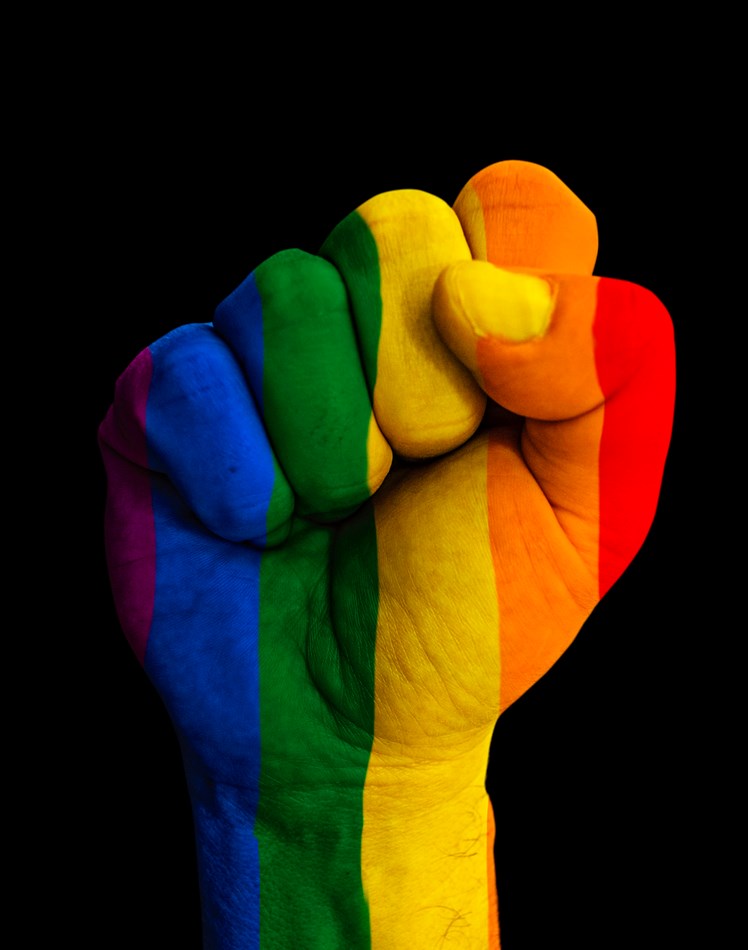Forty-seven years ago, Martin Boyce had just come out and was living in New York City. It was a hot, hazy summer’s night and he was headed to the Stonewall Inn, a hole-in-the-wall bar down on Christopher Street, deep in the heart of Greenwich Village. Outside the bar a police officer was losing a battle with a drag queen he was attempting to stuff into a paddy wagon.
The cop took one look at Boyce and his friends and sneered, “Get out of here you faggots.”
“It looked like it was going to be a rough summer,” Boyce recalls on the line from New York where he still lives. “Police were antagonizing [the gay community] and raids had increased. Everybody knew someone who was in trouble in some way or another. It was this gathering feeling of concern, there were too many people who had a story to tell.”
Led by the queens and the transgender community – largely people of colour – the crowd fought back against the police, sparking what came to be known as the Stonewall riots.
That night, in the early morning hours of June 28, 1969, marked the start of the gay liberation movement and the modern fight for the LGBTQ community worldwide. After years of living as the unjust targets of both police and mainstream society, the LGBTQ community fought back.
“It was a city sport to attack people,” Boyce remembers. “And that made us guerrilla fighters.”

Just one year later, New York City would be the birthplace of the modern Pride parade. For Boyce, it stands in history as the first time he ever saw the gay flag flying in victory.
However, as the Pride movement became more commercialized, Boyce says it started to feel like the political message was being lost. For almost 30 years, he didn’t participate in Pride.
But Orlando changed all of that.
On June 12, 49 LGBTQ revellers and their allies, many from Latin communities in Florida, were gunned down just after last call on a similarly unsuspecting warm summer night at a popular gay nightclub in Orlando.
Overnight, the party became political again. The Orlando massacre forced a long, hard look at the oppression and discrimination still facing the LGBTQ community all over the world. For something of this scale and magnitude to occur on the eve of Pride, the annual celebration of the queer community, it immediately threw into question just how important and how necessary Pride still is.
“Gays know what it’s like to be hunted. That kind of antagonism led to Stonewall and I think it’s being re-examined, because gay people are starting to realize we face a global crisis,” Boyce says. “There is a premonition that we’re always a target. It never leaves you, that kind of feeling.”
For today’s LGBTQ communities, particularly those of a younger generation living in more progressive and safe countries, these stories seem far removed from their reality. But, the events in Orlando brought that back, ripping off the veil of perceived acceptance and safety to expose the ugly and very real faces of homophobia and transphobia.
To some outside the queer community, Pride has been viewed as a show-pony act of overindulgence, prompting some to ask why it is necessary. Recently, the hashtag #HeterosexualPride has gone viral, suggesting the original message of Pride and the importance it carries may have been lost somewhere amidst the rainbows and the glitter.

West End MLA Spencer Chandra Herbert has long fought for the LGBTQ community of which he is a part, beginning in his home constituency and for the rest of the province. He believes Pride can be both a protest and a celebration.
“A protest for equality for all of us, and a celebration for some of us,” he says. “If every day of the week is heterosexual pride day because the assumption is that you should be straight, I think it makes people sometimes consider their privilege.”
Chandra Herbert recently travelled to Prince George and Quesnel for Pride celebrations, communities where he says sidelong glances at two men holding hands are still frequent reminders not of how far equality has come, but just how much further it still has to go.
In Surrey, the LGBTQ community hosted their first Pride parade this year, and in Maple Ridge rainbow crosswalks have been painted at the gateway to Memorial Peace Park in solidarity with those killed in the attack in Orlando.
Chandra Herbert first introduced his private member’s bill to recognize trans rights six years ago. This week, the Gender Identity and Expression Human Rights Recognition Act was finally passed with unanimous support in the legislature – a feat considering four failed previous attempts to get the BC Liberals to support the bill.
“We’ve seen the federal conservatives take an aggressive anti-trans stance,” he explains. “They don’t believe transgender people exist, or should exist, and that’s been the dominant point the Premier has supported.”
Chandra Herbert points out cultural change often is often slow, and plays catch up behind legal change, making these provisions especially important.
“It’s been against the law to be racist [for some time], but as we see, that’s still happening.”
Chandra Herbert says Orlando felt personal. As part of the middle generation in the modern queer community, he says he knows people who have been locked up or institutionalized because of their sexuality or gender identities, and also knows people who have no idea any of that occurred.
“I think there’s a huge risk to losing the stories,” he says. “If we’re comfortable, there’s an assumption it’s just always been this way.”
As events like Stonewall and icons like Harvey Milk dot the American queer landscape, Chandra Herbert doesn’t feel they were formative moments in his own coming out, or his personal understanding of queer rights in Canada.
Instead, he cites early Vancouver activists like ted northe, who in 1958 stood on the steps of the city courthouse (now the Vancouver Art Gallery) dressed in full drag, calling for equality and the end to discrimination.
“In the ‘80s, Little Sisters was firebombed, and I’ve been told stories of mobs of men and police carrying out attacks on gay clubs right here in Vancouver,” Chandra Herbert says.
Many of these stories are buried with those lost to the AIDS crisis, or slowly disappearing with an aging population.

Filmmaker Becca Plucer went looking for those stories in her directorial debut, the OUT TV documentary exploring the life and career of BC queer feminist lawyer, barbara findlay.
In Particular, barbara findlay screened to a packed Rio Theatre back in April, something Plucer says she wasn’t sure could happen, unsure of the relevance a film like this would have in Vancouver’s current queer climate.
“I think once upon a time, Pride meant visibility,” she says. “We are in a passing of the torch to generations and I think there’s discomfort right now because it’s evolving.”
“There’s still a momentum to Pride, but who’s setting the rules of it?”
Plucer imagines a more cohesive Vancouver LGBTQ community, with engaged mentors driving leadership in order to bridge the divide between generations and other communities within the queer identity.
“I sort of went looking for a blueprint for social change,” Plucer explains of her journey making the film. “What I really like about barbara is what she said in the film […] you need a community base, you need a public education campaign and you need a legal strategy.”
“And, the more you learn, the more you learn what you don’t know.”
For Boyce, having lived through the last 50 years of progress of LGBTQ rights, the one truth learned then, is still relevant now.
“The one thing I learned from Stonewall, is that no one is going to give you your freedom, you have to win it. They can give you your liberty on paper, but your freedom…” he trails off.
“The saving grace of the whole thing is that they’ve done something for us, these people who died in Orlando,” Boyce declares. “Stonewall was the beginning, but Orlando is not the end.”



